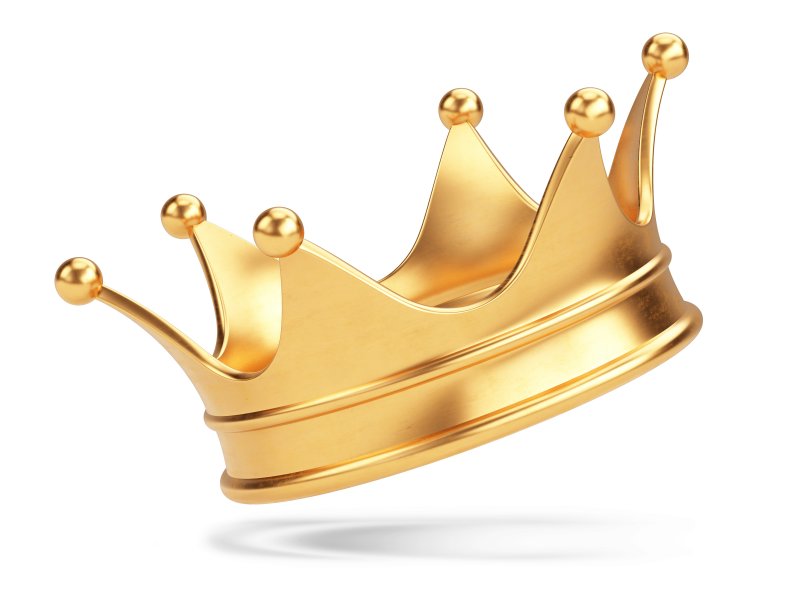Long Live the King: What Is the Lifespan of a Dental Crown?
October 13, 2023

A dental crown can restore a tooth that has been compromised due to injury, extensive decay, or a dental procedure such as a root canal. While they can recreate a tooth’s size, shape, and color, they do not last forever and will eventually need replacement. Here’s how long dental crowns can last as well as how to help them stay functioning and beautiful for the longest time possible.
What Is a Dental Crown?
Dental crowns are placed on top of compromised teeth to restore their original strength and function by providing protection, stability, and a working chewing surface. Modern crowns are typically made out of ceramic materials that allow them to look exactly like natural teeth. While they are often used to treat injured and decayed teeth as well as those that have undergone root canals, they can also be used to provide anchors for dental bridges.
While traditionally dental crowns have taken two or more appointments to place, some dentists today can prepare a tooth, manufacture a crown, and put the two of them together in one appointment thanks to CEREC same-day crown technology. After preparing the tooth, your dentist will take a digital scan and use the data to create a customized crown milled down from a ceramic block. This provides a restoration that looks and feels like a natural tooth.
How Long Can a Dental Crown Last?
Porcelain or ceramic crowns can last for about ten years or longer with proper care. While these materials look like natural teeth, they are also more prone to chipping and cracking than the metals used in more traditional crowns. However, ceramic crowns do not conduct heat or expand or contract in response to temperature changes like metal ones. This makes them much more comfortable to wear in addition to being much less conspicuous.
What Can Shorten My Crown’s Life Expectancy?
While crowns can last a long time, they probably won’t be able to do so if their wearer does not take good care of them. Here’s a list of a few things that can make a crown require replacement sooner:
- Many people grind their teeth as a habitual stress response during the day or involuntarily while they are sleeping. This added pressure can wear crowns out sooner, especially if they are placed on the molars. Breaking the habit or wearing a mouthguard at night can protect your crowns and the rest of the teeth from damage.
- Using your teeth for anything but chewing food can cause major damage to your smile and your crowns. A few examples include using your teeth to open packages or bottles, biting your nails, and chewing on ice. The effects become even worse as your teeth and crowns age.
- It is possible for a cavity to develop under a crown, so it is necessary to practice excellent oral hygiene while wearing one. If a crowned tooth starts to decay, the crown will probably need to be replaced.
Your dental crowns should be a long-term investment, and with excellent care and proper use, they can serve you for a decade or more. It is equally important to keep up with your regular dental appointments so your dentist can monitor the condition of your crown and advise you on proper maintenance.
About the Author
Dr. Carroll R. Butler earned his Doctor of Dental Surgery at the University of Texas Health Science Center Dental School at San Antonio before completing a one-year residency at Travis Air Force Base in California. He is proud to serve as a Fellow of the Academy of General Dentistry and as a member of the American Dental Association and the Texas Dental Association. His office in Kerrville, TX offers general, pediatric, cosmetic, emergency, and restorative dentistry such as dental crown treatments. For more information on the lifespans of dental crowns, contact the office online or dial (830) 257-4900.
No Comments
No comments yet.
RSS feed for comments on this post.
Sorry, the comment form is closed at this time.

